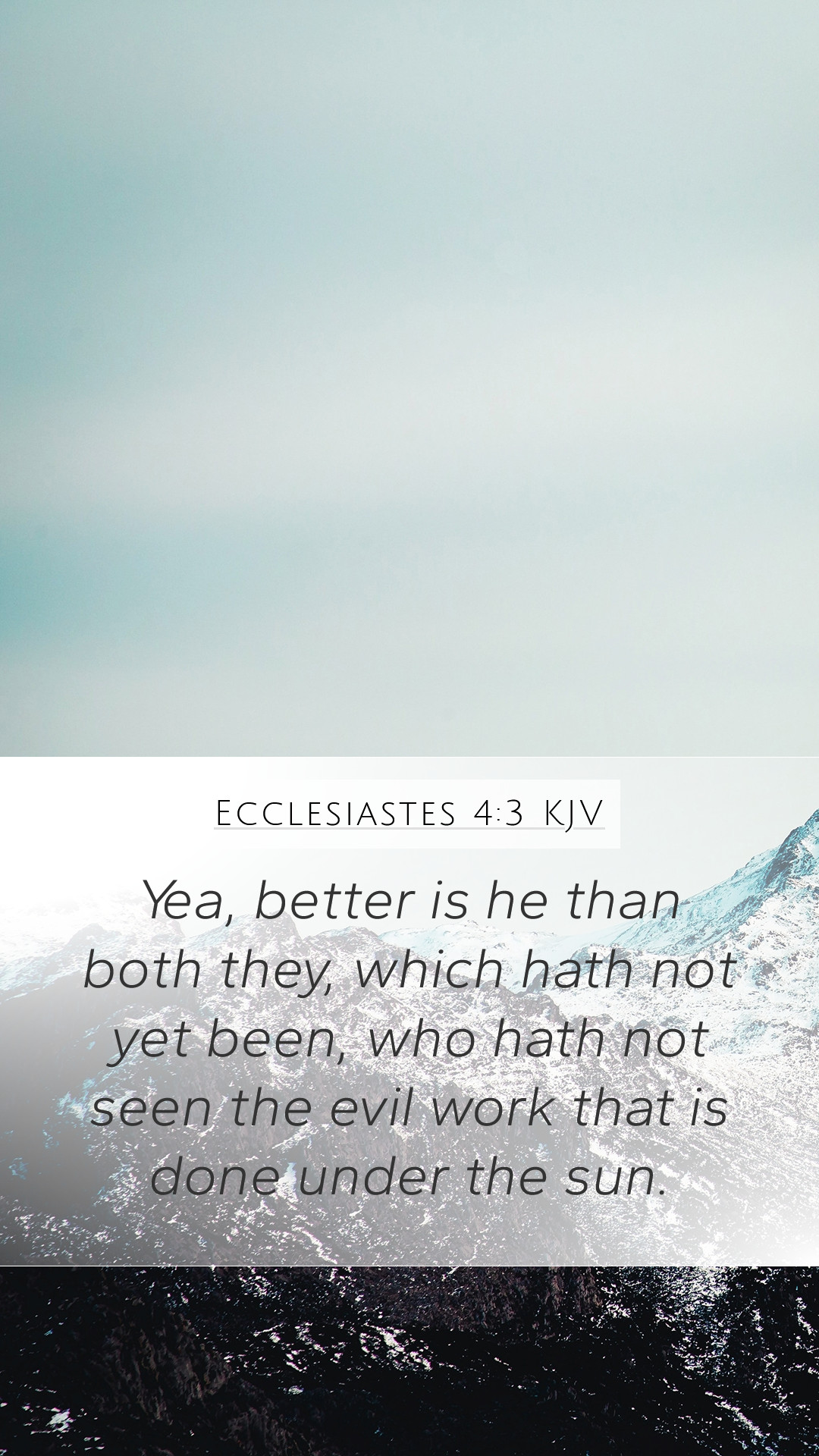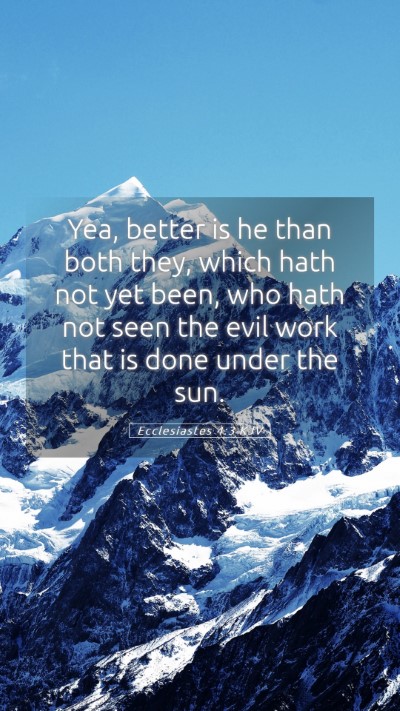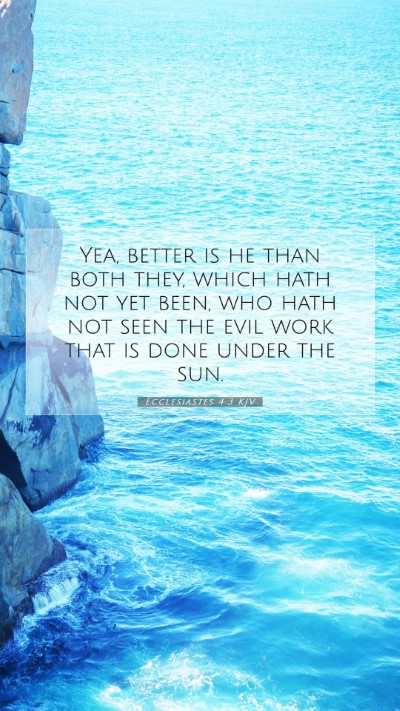Old Testament
Genesis Exodus Leviticus Numbers Deuteronomy Joshua Judges Ruth 1 Samuel 2 Samuel 1 Kings 2 Kings 1 Chronicles 2 Chronicles Ezra Nehemiah Esther Job Psalms Proverbs Ecclesiastes Song of Solomon Isaiah Jeremiah Lamentations Ezekiel Daniel Hosea Joel Amos Obadiah Jonah Micah Nahum Habakkuk Zephaniah Haggai Zechariah MalachiEcclesiastes 4:3 Meaning
What is the meaning of Ecclesiastes 4:3?
Yea, better is he than both they, which hath not yet been, who hath not seen the evil work that is done under the sun.
Ecclesiastes 4:3 Bible Verse Meaning
Understanding Ecclesiastes 4:3
Ecclesiastes 4:3 states, "Yea, better is he than both they, which hath not yet been, who hath not seen the evil work that is done under the sun."
This verse presents a poignant reflection on the nature of existence and the struggles inherent in life. It speaks to the futility of many experiences, particularly those marked by suffering and inequity. To gain a deeper understanding of this scripture, we will explore insights from various public domain commentaries.
Insights from Commentaries
-
Matthew Henry's Commentary
Matthew Henry emphasizes that the verse reveals the profound weight of existence and the significant burdens faced by humanity. Henry notes that it is better to have never been born than to endure the struggles and evils of life without a greater purpose or understanding. He suggests that the suffering witnessed can overshadow the joys of life, making a life filled with hardship seem less desirable than non-existence.
-
Albert Barnes' Notes on the Bible
Albert Barnes interprets the verse as a commentary on the vanity of human endeavors. He highlights that the reference to the unborn contrasts the advantages of existence with the pain and evil that one witnesses in life. Barnes points out that those who have not seen the evils of this world enjoy a kind of ignorance that allows them to escape the disillusionment that comes with such experiences. In this view, the emphasis is on the peace found in never having encountered the struggles of life.
-
Adam Clarke's Commentary
Adam Clarke provides a contemplative analysis that reflects on the meaning behind being born into a world filled with sorrow. He discusses how the scripture suggests an unjust reality where the burdens of life can lead one to question the value of existence itself. Clarke’s interpretation focuses on a thematic inquiry into the purpose of life and the heavy toll taken by the realities faced under the sun.
Thematic Exploration
The overarching theme of Ecclesiastes 4:3 centers on the inherent struggles of life, the presence of evil, and the question of existence. This verse is a somber reminder of the realities one must face, invoking feelings of empathy for those who suffer. It challenges readers to consider the purpose of life and the meanings behind their experiences.
Additional Biblical Context
Understanding this scripture also demands a look into its broader biblical context. Related verses provide clarity and reinforce the message of Ecclesiastes 4:3:
- Job 3:11-12 - Job laments his birth, mirroring Ecclesiastes’ sentiments on the pain of existence.
- Psalm 139:13-16 - These verses reflect on God's knowledge of life within the womb, opposing the despair of Ecclesiastes.
- Isaiah 53:3 - The suffering servant context aligns with the theme of suffering within life, showing the redemptive elements of pain.
- Romans 8:18 - Paul speaks of present sufferings compared to future glory, providing hope amidst despair.
Applications and Reflections
For those seeking to apply the insights of Ecclesiastes 4:3 in their lives, it prompts a reflection on personal suffering and the value of existence. How can we navigate the evil that we see and face in our lives? The verse invites discussions in Bible study groups and can serve as a catalyst for online Bible study sessions exploring the meaning of suffering, hope, and purpose.
Additionally, this verse serves as a reminder to appreciate life, seek purpose amid trials, and help others who are suffering. Engaging with Bible study resources and Bible study guides can further enrich understanding and application of such profound verses.
Conclusion
Ecclesiastes 4:3 presents a significant commentary on life’s trials, the suffering under the sun, and a contemplative view on existence. By combining various biblical interpretations, we gain a comprehensive understanding that can lead to deeper insights in personal reflections, discussions, and studies. If you explore the meanings of this verse, you’ll find an introspective journey that touches on the essence of human experiences.


